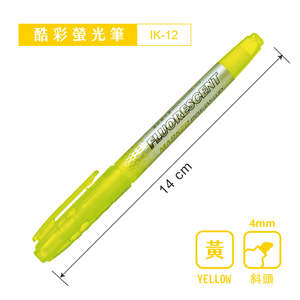作者:Mark O’Neill
 1收藏
1收藏

 二手徵求有驚喜
二手徵求有驚喜
定價:NT$ 760
優惠價: 9 折, NT$ 684
運送方式:超商取貨、宅配取貨
銷售地區:全球
訂購後,立即為您進貨




The Jews first arrived in China during the Tang dynasty (618-907 AD) and settled as businessmen, civil servants and professionals. They assimilated into Chinese society and lost their Jewish character. The next wave came in the mid-19th century with the opening of the treaty ports and settled in Shanghai. They went into trading, especially opium, and diversified into property, manufacturing, finance, public transport and retail. Another Jewish community settled in Harbin after the opening of the China Eastern Railway in 1903. They also prospered in trading and business. Both communities built synagogues, schools, social clubs and welfare institutions. During World War Two, 25,000 Jews from Nazi-occupied Europe took refuge in Shanghai, one of the few cities in the world open to them. Many received visas from Asian diplomats who defied their governments to issue them. The Japanese military refused the Nazi demand to carry out ‘the final solution’ of the Jews in Shanghai. After 1945, inflation, civil war and Communist rule made most Jews leave China for new homes in Israel, North America, Australia and elsewhere. The new state of Israel worked hard to establish diplomatic ties with the People’s Republic; it became an important supplier of weapons in the 1980s. But it took 42 years for the two countries to sign the ties, in 1992. Since then, relations have blossomed and China has become one of Israel’s biggest foreign investors. In the reform and open-door era, Jewish people have returned to China and form important communities in Beijing, Shanghai, Guangzhou and other cities. Part of this narrative are remarkable individuals who have left a deep imprint on China – Karl Marx, Sir Victor Sassoon, Silas Hardoon, the Kadoorie family, Henry Kissinger and Sigmund Freud.
To tell this extraordinary story, Mark O’Neill conducted many interviews with rabbis, businessmen, entrepreneurs, professors and journalists in Beijing, Shanghai, Hong Kong and Israel. It is, largely, a joyful page in Jewish history.
“I believe in God and the hand of providence. Sometimes, if we are lucky, we can see God's guiding hand, and the story of the Jews in China is one of those lucky times. We see God's guiding hand, we have seen providence”
– Rabbi Asher Oser of Ohel Leah synagogue, Hong Kong
作者簡介:
Mark O’Neill was born in London and educated at New College, Oxford University. Mark has worked in Asia since 1978, in Hong Kong, Taiwan, India, China and Japan, for the BBC, Reuters, the South China Morning Post and other media. He has written eight books: Tzu Chi — Serving with Compassion; Frederick, the Life of My Missionary Grandfather in Manchuria; The Chinese Labour Corps; From the Tsar’s Railway to the Red Army; The Second Tang Dynasty — The 12 Sons of Fragrant Mountain Who Changed China; The Miraculous History of China’s Two Palace Museums, Ireland's Imperial Mandarin: How Sir Robert Hart Become the Most Influential Foreigner in Qing China and this one. Five have Chinese editions, both traditional and simplified, as well as English. He lived in Beijing and Shanghai for more than 16 years. Now he works as an author, journalist and teacher, based in Hong Kong. He speaks and writes Chinese (Mandarin and Cantonese), French and Japanese.
退換貨說明:
會員均享有10天的商品猶豫期(含例假日)。若您欲辦理退換貨,請於取得該商品10日內寄回。
辦理退換貨時,請保持商品全新狀態與完整包裝(商品本身、贈品、贈票、附件、內外包裝、保證書、隨貨文件等)一併寄回。若退回商品無法回復原狀者,可能影響退換貨權利之行使或須負擔部分費用。
訂購本商品前請務必詳閱退換貨原則。作者:Mark O’Neill
 1收藏
1收藏

 二手徵求有驚喜
二手徵求有驚喜
優惠價: 9 折, NT$ 684 NT$ 760
運送方式:超商取貨、宅配取貨
銷售地區:全球
訂購後,立即為您進貨
The Jews first arrived in China during the Tang dynasty (618-907 AD) and settled as businessmen, civil servants and professionals. They assimilated into Chinese society and lost their Jewish character. The next wave came in the mid-19th century with the opening of the treaty ports and settled in Shanghai. They went into trading, especially opium, and diversified into property, manufacturing, finance, public transport and retail. Another Jewish community settled in Harbin after the opening of the China Eastern Railway in 1903. They also prospered in trading and business. Both communities built synagogues, schools, social clubs and welfare institutions. During World War Two, 25,000 Jews from Nazi-occupied Europe took refuge in Shanghai, one of the few cities in the world open to them. Many received visas from Asian diplomats who defied their governments to issue them. The Japanese military refused the Nazi demand to carry out ‘the final solution’ of the Jews in Shanghai. After 1945, inflation, civil war and Communist rule made most Jews leave China for new homes in Israel, North America, Australia and elsewhere. The new state of Israel worked hard to establish diplomatic ties with the People’s Republic; it became an important supplier of weapons in the 1980s. But it took 42 years for the two countries to sign the ties, in 1992. Since then, relations have blossomed and China has become one of Israel’s biggest foreign investors. In the reform and open-door era, Jewish people have returned to China and form important communities in Beijing, Shanghai, Guangzhou and other cities. Part of this narrative are remarkable individuals who have left a deep imprint on China – Karl Marx, Sir Victor Sassoon, Silas Hardoon, the Kadoorie family, Henry Kissinger and Sigmund Freud.
To tell this extraordinary story, Mark O’Neill conducted many interviews with rabbis, businessmen, entrepreneurs, professors and journalists in Beijing, Shanghai, Hong Kong and Israel. It is, largely, a joyful page in Jewish history.
“I believe in God and the hand of providence. Sometimes, if we are lucky, we can see God's guiding hand, and the story of the Jews in China is one of those lucky times. We see God's guiding hand, we have seen providence”
– Rabbi Asher Oser of Ohel Leah synagogue, Hong Kong
作者簡介:
Mark O’Neill was born in London and educated at New College, Oxford University. Mark has worked in Asia since 1978, in Hong Kong, Taiwan, India, China and Japan, for the BBC, Reuters, the South China Morning Post and other media. He has written eight books: Tzu Chi — Serving with Compassion; Frederick, the Life of My Missionary Grandfather in Manchuria; The Chinese Labour Corps; From the Tsar’s Railway to the Red Army; The Second Tang Dynasty — The 12 Sons of Fragrant Mountain Who Changed China; The Miraculous History of China’s Two Palace Museums, Ireland's Imperial Mandarin: How Sir Robert Hart Become the Most Influential Foreigner in Qing China and this one. Five have Chinese editions, both traditional and simplified, as well as English. He lived in Beijing and Shanghai for more than 16 years. Now he works as an author, journalist and teacher, based in Hong Kong. He speaks and writes Chinese (Mandarin and Cantonese), French and Japanese.
退換貨說明:
會員均享有10天的商品猶豫期(含例假日)。若您欲辦理退換貨,請於取得該商品10日內寄回。
辦理退換貨時,請保持商品全新狀態與完整包裝(商品本身、贈品、贈票、附件、內外包裝、保證書、隨貨文件等)一併寄回。若退回商品無法回復原狀者,可能影響退換貨權利之行使或須負擔部分費用。
訂購本商品前請務必詳閱退換貨原則。
※ 二手徵求後,有綁定line通知的讀者,
該二手書結帳減5元。(減5元可累加)
請在手機上開啟Line應用程式,點選搜尋欄位旁的掃描圖示
即可掃描此ORcode
|
||||||||||||||||||
|
||||||||||||||||||
|
||||||||||||||||||













